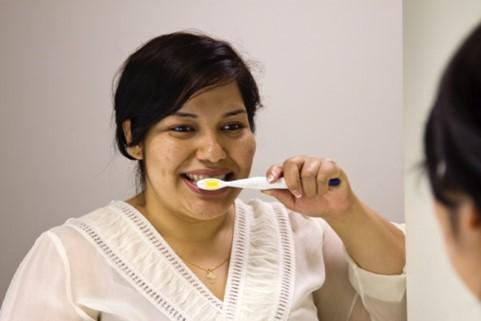Physical Fitness
It is important that you are physically prepared for your surgery to help minimize the risk of complications after surgery and throughout your healing process.
Physical fitness for surgery includes good heart and lung function.
- Any medical conditions, including heart and lung problems, may pose a risk for complications after surgery and should be addressed with your health care team.
- If you smoke, you should quit smoking, especially since smoking is a significant risk factor for many kinds of cancer, including gastric cancer.
- For at least one month before surgery, get 30 minutes of exercise every day, such as brisk walking, gardening, exercising at home or going to the gym, to promote good cardiovascular health.
Weight
Even though you will lose weight after your total gastrectomy, most people should not gain weight before surgery. Being overweight or obese increases the risk of complications after surgery. People who are overweight or obese can actually benefit from weight loss before surgery. People who are underweight (very thin) may benefit from weight gain before surgery.
Talk to your dietitian and health care team about your weight goals before surgery and how to achieve those goals.
Diet and Nutrition Tips to Prepare for Total Gastrectomy
These tips will help you prepare your body for surgery. They also help you start to learn how to eat after a gastrectomy.
Contact your registered dietitian if you have any questions about how to apply any of these tips to your lifestyle.
1. Review “Diet and Nutrition After Gastrectomy: What You Should Know”
That packet describes the dietary and lifestyle changes you will have to make after surgery. These tips will also help you learn how to eat after a gastrectomy.
2. Practice eating slowly and concentrate on chewing your food well.
Chew your food until it is pureed before you swallow.
3. Eat smaller meals more often.
After surgery, you will feel full after very small amounts of food (2-3 ounces). Start eating 5 or 6 small meals per day instead of 3 larger meals. You may need to adjust your home, work and/or school schedule to allow frequent meals.
4. Practice eating meals without drinking liquids.
After surgery, you will need to separate solid food from liquids by at least 30 minutes, so it is important to start getting used to eating your meals without a beverage. Drink fluids 30 minutes before or 30 minutes after your meal.
5. Start reading nutrition labels for added sugars.
After gastrectomy, you will need to avoid added sugars to prevent side effects such as dumping syndrome (described in “Diet and Nutrition After Total Gastrectomy: What You Should Know”). See the detailed instructions in “Diet and Nutrition After Gastrectomy: Your Plan” to learn how to read the Nutrition Facts labels for added sugar. Find products that do not have added sugar to replace any products you eat now that do have added sugar. Taste test different brands to find products you like.
6. Learn which foods are high in protein.
After surgery, your body will need a lot of protein to heal. Since you will feel full quickly, it is very important to have protein at every meal and snack so that you can meet your protein needs. Use the Nutrition Facts labels on the side of food packages to find foods high in protein. Start having a high protein food with every meal and snack, such as a no sugar added protein drink, bar or yogurt. See “Diet and Nutrition After Gastrectomy: Your Plan” for more examples. Taste test protein drinks without added sugars, as they can help you meet your hydration goals after surgery as well.
7. Take good care of your teeth.
Since you will need to chew your food extra carefully after total gastrectomy, good oral hygiene is key. Practice good oral hygiene every day, including brushing and flossing your teeth. See your dentist for regular cleanings and make sure to address any known dental concerns before your surgery.
8. Talk to your dietitian about vitamin supplements before your surgery.
Tell your dietitian about any supplements you are currently taking. Depending on your supplements, lab results, past medical history and/or other factors, you may need to take specific vitamins before surgery to correct low vitamin levels. If you do, your registered dietitian will give you specific instructions. You may find it helpful to print this page and write your instructions below.

